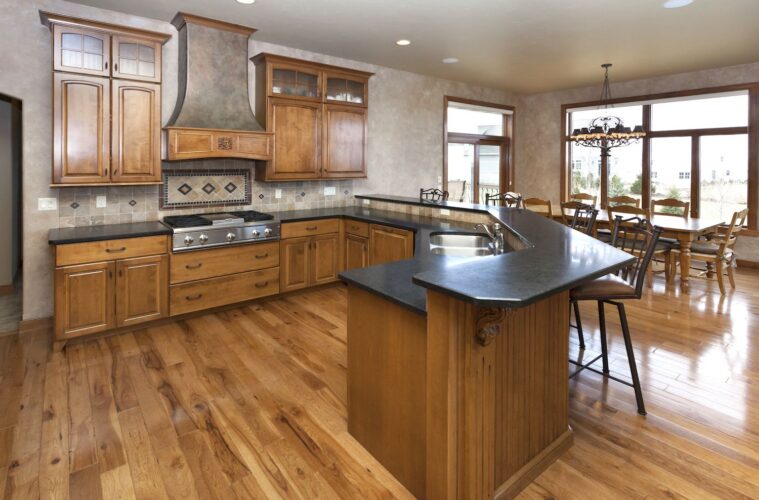If you are redoing your kitchen countertops, you’re likely dealing with the same question most homeowners have: granite or quartz?
Both are popular choices for various reasons, but it can be hard to decide which is the most aesthetically pleasing and functional for your daily life.
The pros and cons of using each stone for your countertops can help you determine the better choice.
Pros of Granite
Granite has many positive attributes that make it an ideal countertop selection.
Unique Appearance
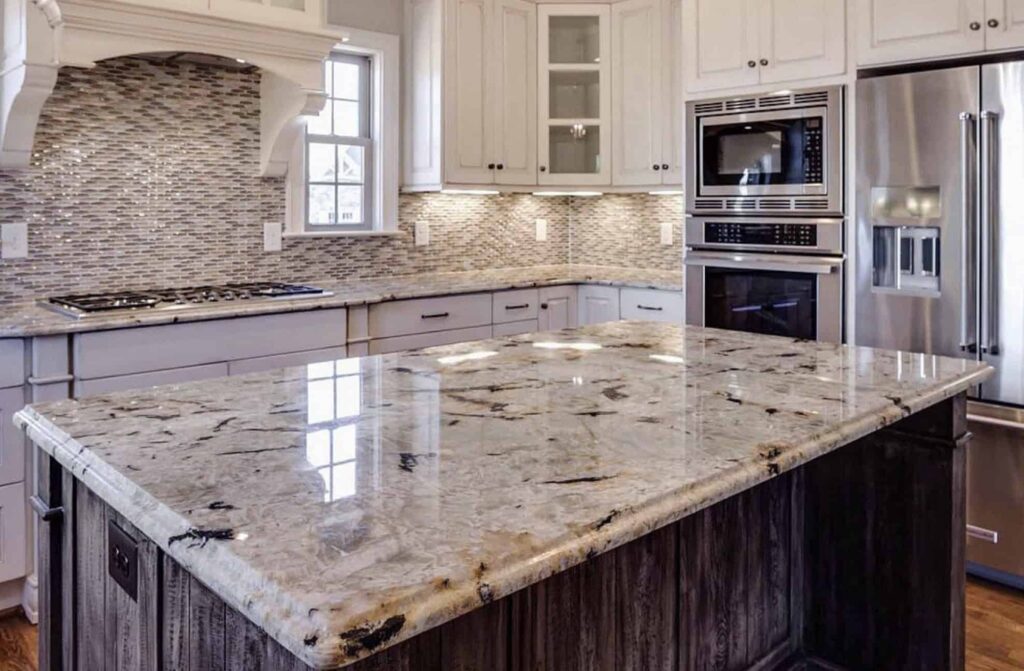
source: pinterest.com
You’re unlikely to find two granite countertops that look the same. Granite forms in the Earth through magma and minerals and rocks bind to it when it flows. When the mixture solidifies, it becomes granite.
The magma picks up different stones in random arrangements, so each piece of granite cut is unique to your home.
Heat-Resistant
Granite countertops can handle heat better than natural or synthetic ones, including quartz.
The stone’s melting point is over 2,000 F, and granite countertops can handle up to 1,200 degrees before being damaged. They can take anything right off the stove or out of the oven, speeding up your meal preparation.
Vibrancy
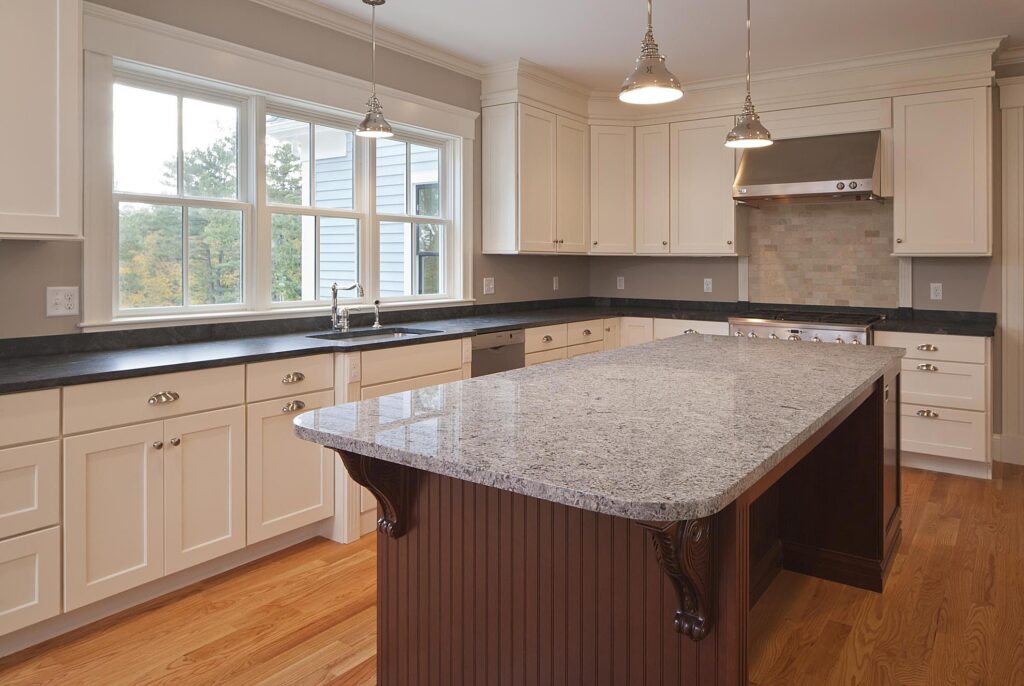
source: pinterest.com
Many countertops start vibrant but fade over time due to sun exposure through windows or glass doors. Granite countertops resist the sun’s rays, and quality stone won’t fade like options.
For a long-lasting appearance, granite could be the right choice for you.
Price
Due to modern technological advancements, granite production is more cost-efficient than other counter materials.
Mid-quality quartz countertops cost around $65-$75 per square foot, and you can purchase lovely granite versions for $40-$60 per square foot.
The quality price is an aspect that draws many homeowners to granite countertops.
Cons of Granite
Despite their many plusses, some things make granite less desirable.
Dated Look
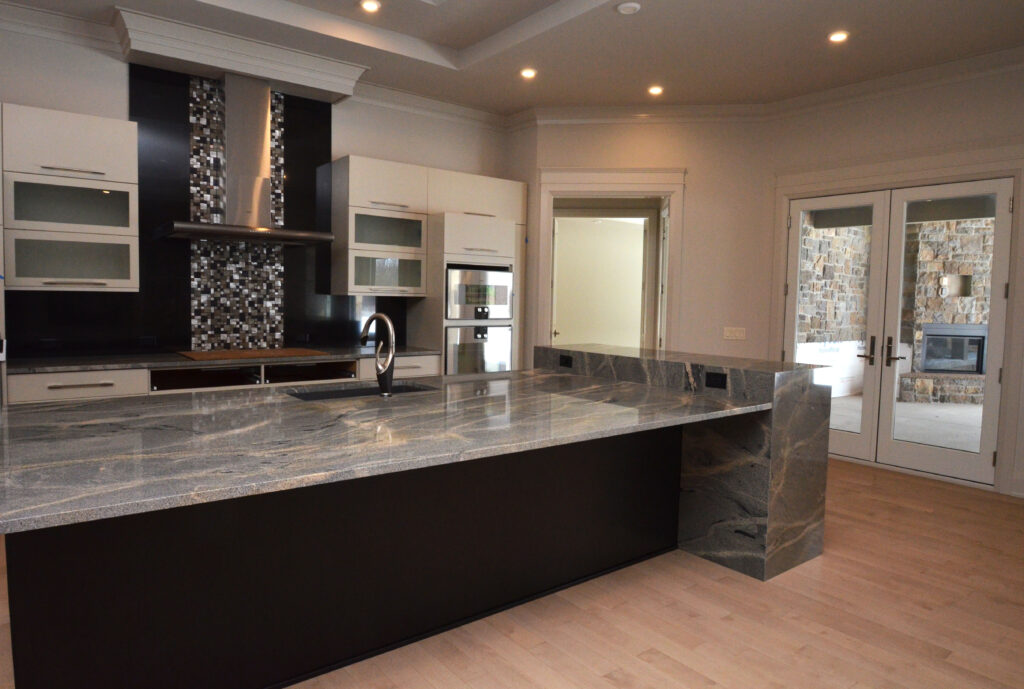
source: pinterest.com
For many people, granite is an “outdated” style of countertop. They boomed in the 1970s but aren’t as trendy as modern quartz or marble countertops.
Trends shouldn’t dictate what you put in your home but know that granite countertops may seem old-fashioned to some guests.
Cracks
Though granite can take the heat, it can struggle under hard blows. Granite countertops can crack if a heavy object hits them, with the edges of the counter most vulnerable to chips and cracks.
Though it takes a hard blow to crack, you’ll need to repair your countertops if something damages them.
Cold
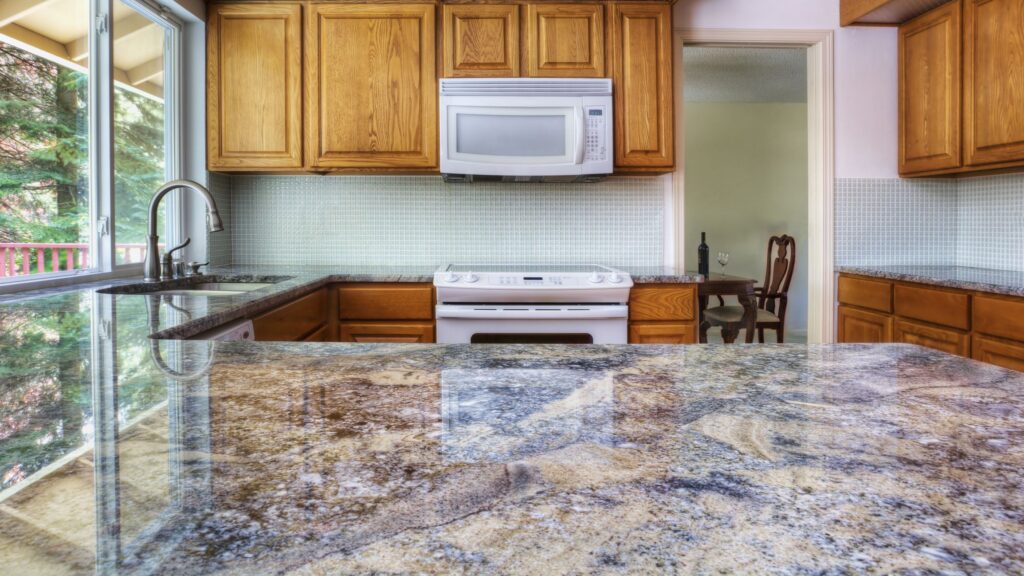
source: pinterest.com
Granite countertops stay colder than other surfaces and may take you by surprise when your dishes cool more quickly.
If you make a cup of hot coffee on a cool morning, leaving your mug on a granite countertop could quickly make it too cold to enjoy.
The cool surface is important to keep in mind when deciding on granite countertops.
Hard to Replace
Granite countertops can last a very long time, which can be a significant benefit.
However, their weight and durability make it almost impossible to replace them without damaging the cabinets underneath them.
If you think you might want to redo your countertops without replacing everything in the future, granite might not be for you.
Pros of Quartz
Quartz features several benefits that make it good for kitchen countertops.
Wider Color Options
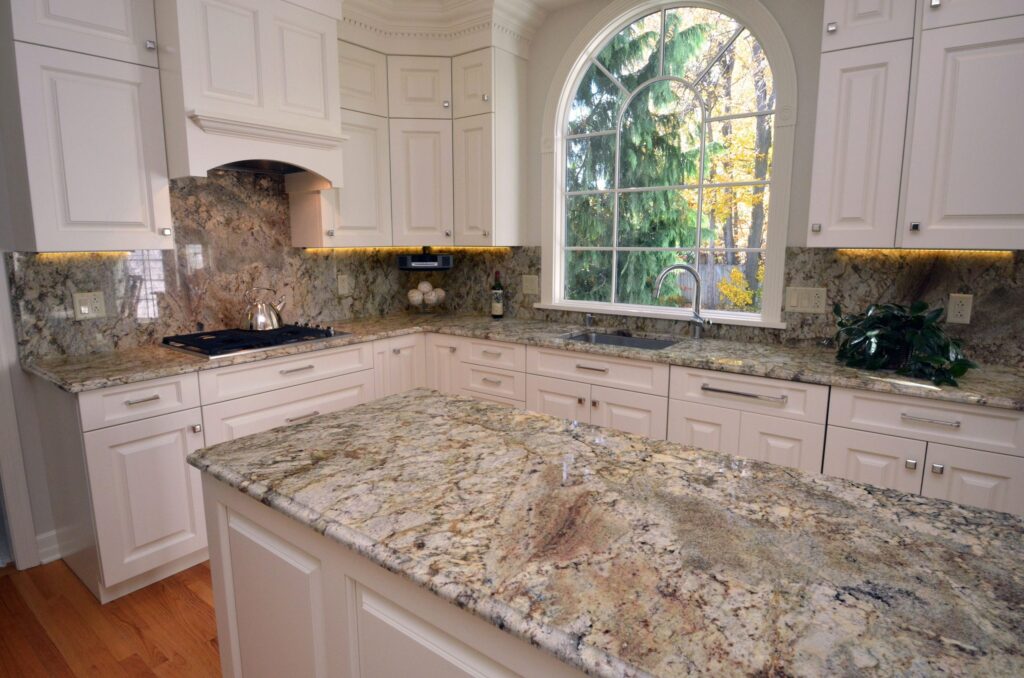
source: pinterest.com
Quartz countertops come in various colors that you won’t find in other stone countertops, allowing you the most significant number of options.
Quartz might be suitable for you if you want a blue, red, or purple shade of stone.
More Touch-Friendly
Stone countertops are hardy, but they can come with a rough texture that isn’t always comfortable to put your hands on.
Quartz is extremely tough but has a smoother feel that homeowners enjoy working on. If you are looking for a gentle countertop on your skin, quartz may be a good choice.
Crack-Resistant
Another benefit to quartz countertops is that they’re resistant to cracking.
Quartz is a very durable stone that can take a beating. These countertops are resistant to blows that cause cracks or chips. If you want countertops that can handle an impact or two, quartz countertops may be the way to go.
Nonporous
Some countertops have tiny pores that can trap liquids, dirt, and bacteria. This can make the surface unsanitary. Certain countertops, like granite, need to be sealed ahead of time to prevent that problem.
Quartz countertops are nonporous without sealing, making them easy to keep nice and clean. They may be your best solution if you or someone at home is vulnerable to illness.
Cons of Quartz
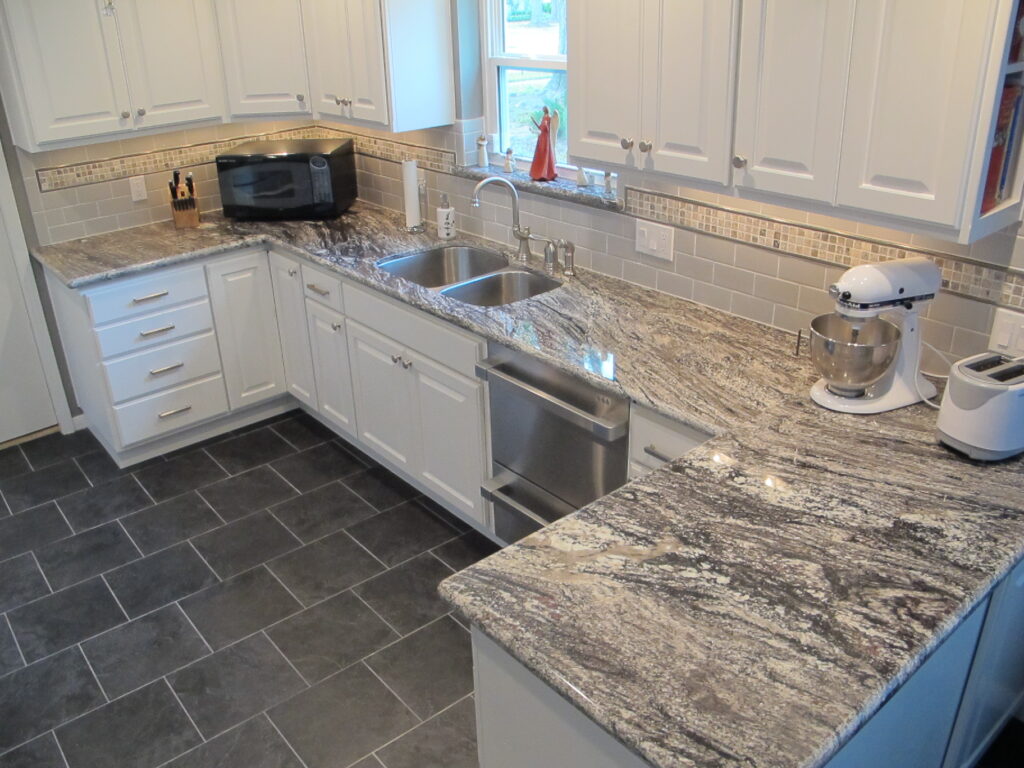
source: pinterest.com
There are some downsides to consider if you’re pondering installing quartz counters.
Price
Quartz is one of the priciest countertop options, and many homeowners prefer something more economical.
High-quality quartz countertops can range from $75-$200 per square foot, which is pricier than most stone countertops. If you’re looking for a cost-effective countertop, quartz may not be the right decision.
Heat Damage
Quartz countertops are durable, but extra hot pots and pans could cause damage.
Quartz can only handle temperatures up to 400 degrees, so you won’t want to place straight-from-the-oven dishes on them.
Size
Professionals can cut other stones to size, but you can only get a quartz countertop up to 132 inches long and 65.5 inches wide.
If you need a countertop larger than that, you’ll need to have a seam, which does not appeal to everyone.
Sun Damage
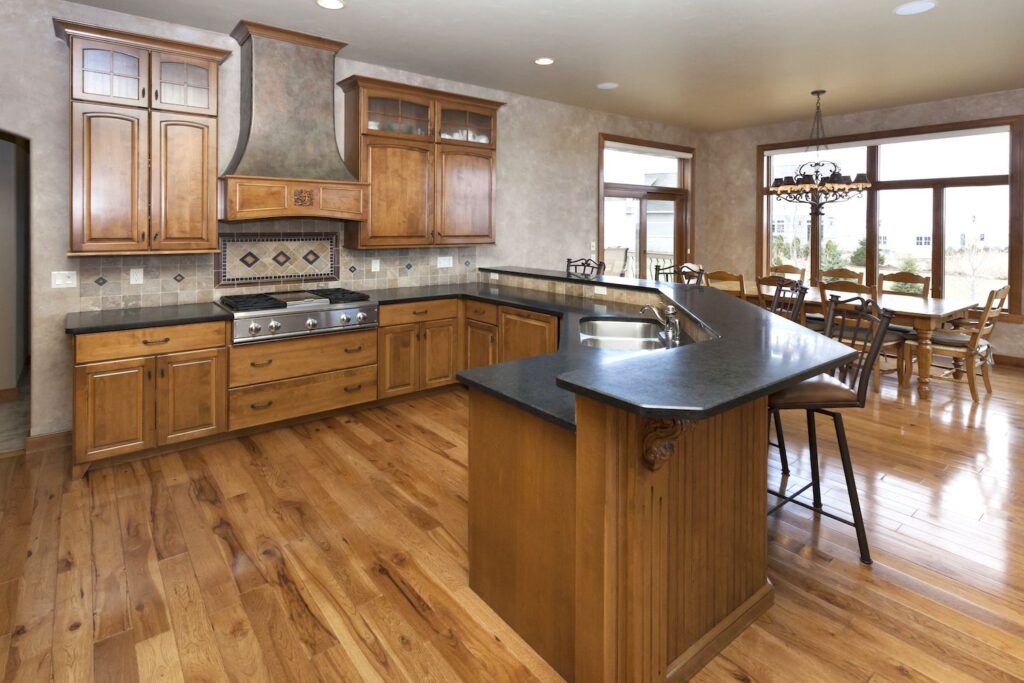
source: pinterest.com
Quartz countertops can resist cracks and chips, but they can warp.
If your countertop faces too much sun, the UV will cause them to warp into a different shape. You don’t want to spend the money on quartz to have this happen, so if you have a counter sitting in direct sunlight, quartz might not be suitable for you.
Which Is More Functional?
Granite and quartz countertops have various advantages and disadvantages. The most functional countertop depends on your needs.
Granite might be better if you’re looking for a durable, budget-friendly countertop. If you’d prefer a sturdy but more glamorous option, quartz may be the way to go.
The most important thing is to pick the countertop that will work best for your home.

